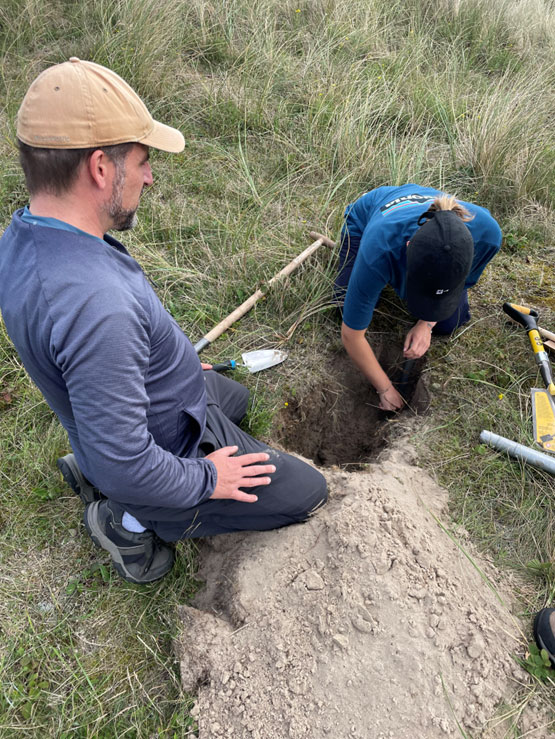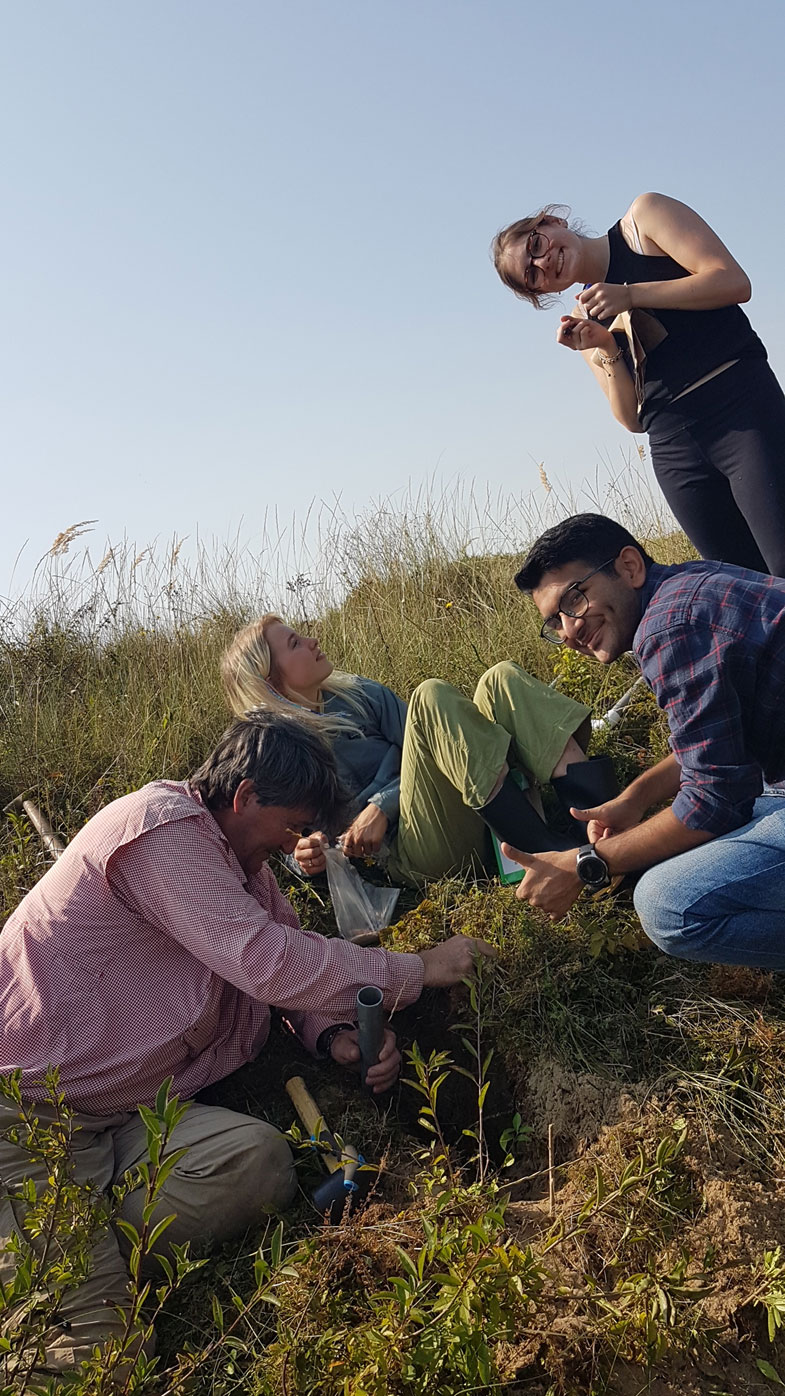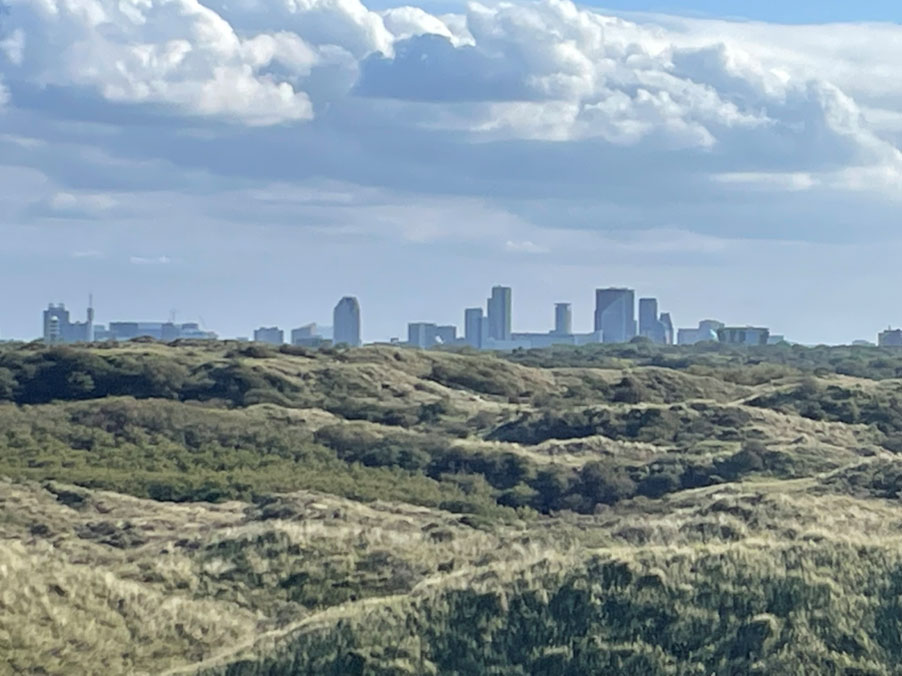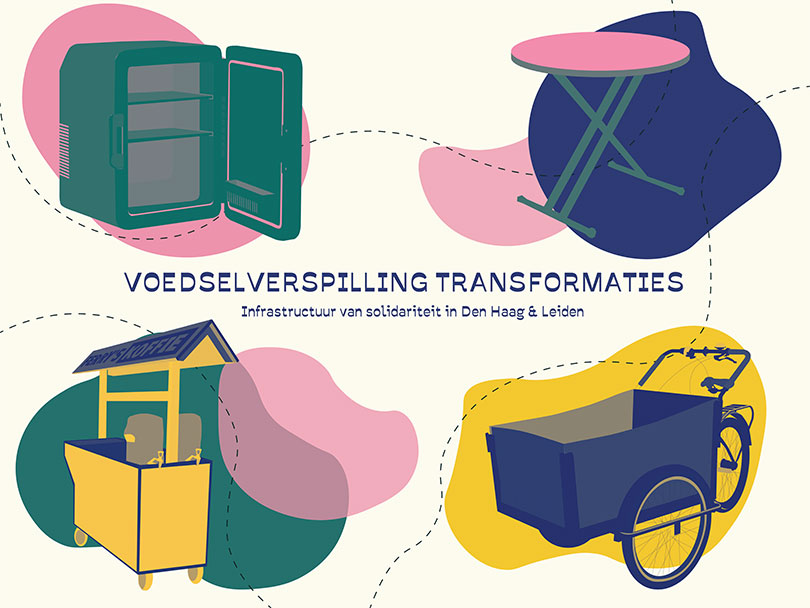Leiden University College The Hague
LUC and The Hague
Leiden University College (LUC) staff and students collaborate with societal partners in The Hague through research, coursework, internships, and volunteering, fostering strong connections that continue even after graduation.
LUC staff and students actively engage with the city we call home through various activities, including coursework, research projects, and 'research clinics' where they collaborate with societal partners in The Hague. Bachelor thesis (capstone) projects are another avenue for this engagement, often involving independent research or partnerships like the Leiden-Delft-Erasmus (LDE) Thesis Hub in The Hague South West. Internships and student volunteering further strengthen these connections. Many LUC alumni continue to contribute to The Hague after graduation, working as volunteers or finding roles at ministries, NGOs, or other societal organisations.
Explore the initiatives on this page for a glimpse of the projects in The Hague we're involved in.
'Struggle in the City': Students create serious games

In the Global Citizenship course Struggle in the City, students delve into the multifaceted nature of poverty, vulnerability, and struggle in The Hague. They examine the formal and informal networks of social protection that exist to provide support. Drawing on their research and inspired by the work of local protection providers, students create simulations and 'serious' (educational) games designed to foster recognition, empathy, and outreach for the struggles they studied.
The struggles explored range from addiction and homelessness to refugee experiences, ageing, loneliness, debt, eating disorders, intimate partner violence, and food insecurity. Struggle in the City: The Hague Edition has collaborated with diverse partners, including Kindertelefoon, Krav Maga The Hague, The Kessler Soup Bus, Brijder, Frisse Gedachtes, Alcoholics Anonymous, De Waag, and The Woodstock clinic.
Examples of student simulations include a ‘sightseeing’ tour through The Hague to experience blindness and a workplace simulation for hiding addiction. Game concepts have included Silent Saboteur, Debt Lifting, and Let’s Connect. For a full overview of projects, partners, and game concepts, visit the course webpage.
Contact
Muddy Boots & Muddy Waters: Partnership with Dunea to examine dune dynamics and carbon sequestration
Through an established partnership with Dunea, LUC staff and students collaborate on sustainability research focused on soil carbon storage, landscape dynamics, water management, and ecological restoration. Using a combination of field techniques, the LUC Science Lab, and spatial (GIS) analysis, the research explores dune dynamics and carbon storage variability in the nearby coastal area of Meijendel.
Laboratory work includes particle size analysis of sediments, characterisation of organic material, soil carbon calculations, and statistical analyses to compute various indices. Integrated into the curriculum through a Research Clinic, students work closely with LUC academic staff on projects that offer both practical applications and theoretical insights.
Fieldwork takes place in Meijendel’s nearby dune environments, with findings presented to Dunea to support their initiatives.
Read more
- Research clinic: Soil carbon dynamics in managed dune landscapes
- Research clinic: Summit to Sea - Muddy Boots & Muddy Waters
Contact
Using LUC’s interdisciplinary lens to connect with the Municipal Community Garden initiative

In the face of rapid urbanisation, environmental change, and social isolation, community gardens are becoming vital components of liveable, sustainable, and resilient cities. These spaces offer essential ecosystem services, promote health and well-being, enhance food security, and foster social cohesion.
In The Hague, urban farming initiatives are supported by the municipality’s Stadslandbouw programme (Stadslandbouw Den Haag | Het Haagse Groen). LUC collaborates with Stadslandbouw Den Haag by coordinating capstone theses that serve as pilot studies for long-term projects. This work adopts an interdisciplinary perspective, addressing environmental and socio-economic challenges through fieldwork, systematic literature reviews, and spatial analysis.
Contact
Student collaborations with Humanities across Borders lead to a multilingual wordbook on the Asian diaspora in The Hague

In the Social Determinants of Health course, students actively engage with communities in The Hague to explore the social, political, and economic factors that influence well-being. Partner communities have included the Bezuidenhout Community Centre, Stadsdeel Benoordenhout, and Humanities across Borders (part of IIAS at Leiden University).
As part of the partnership with Humanities across Borders, students continued volunteering after completing the course. They contributed by conducting interviews for the Humanities across Borders multilingual wordbook project, which captures the diverse realities of the Asian diaspora in The Hague. The 25-word stories featured in the book offer a unique glimpse into the lives of some of the city’s residents.
Downloads
Contact
Links between citizenship, food, and food waste management in The Hague
This project brought together three distinct initiatives:
1. A teaching-in-practice research clinic
Within the framework of CID KennisMaken Den Haag, LUC students and staff examined how different resident communities in The Hague—status holders, newcomers, and expats—perceive and manage food waste in relation to citizenship, focusing on rights and responsibilities. Community partners included Delft University of Technology, Compost Bakkers, the British School of the Netherlands Junior School Diamanthorst, De Vuurvlinder, BZH Library, and HSV School Bezuidenhout. The findings were compiled into a policy report for the Municipality and CID KennisMaken Den Haag. You can read more 0n the 'Wasted: Exploring Food Citizenship as a Form of Urban Resilience' research project page.
2. Stories of solidarity during COVID-19
This initiative involved LUC, ISS, and The Hague School of Applied Sciences. An LUC researcher led a project in partnership with LIAS, focusing on stories of solidarity during COVID-19. The research explored how food fostered solidarity in The Hague and Leiden, collaborating with local organisations such as Conscious Kitchen, Vers en Vrij, Haagse Markt, Leiden Market, and Green Kitchen Leiden. Read more by exploring the 'Learning from solidarities in times of COVID-19 in The Hague' website.
3. Stories of solidarity in relation to food waste
Building on the previous initiative, LUC conducted a focused study on stories of solidarity in relation to food waste in The Hague. This culminated in the Food Waste Transformers exhibition at The Hague City Hall in June 2022. Stories were creatively presented using a fridge bike, coffee cart, and cocktail table to highlight infrastructures of solidarity in The Hague and Leiden. You can find out more by exploring the 'Stories of solidarity with food waste during COVID-19' pages.
Fireside Peace Chats: Bringing policymakers, practitioners, and academics involved in peacebuilding together in The Hague

The Fireside Peace Chats, co-organised by Leiden University College, The Hague Humanity Hub, and the Knowledge Platform for Security and Rule of Law, provide a space for informal and intimate discussions with peacebuilders and experts working in conflict-affected environments. These gatherings bring together a diverse learning community of practitioners (NGO and governmental), researchers, policymakers, students, and citizens.
Participants have included experts and organisations such as Peace Boat Japan, GPPAC Northeast Asia, peacebuilders from South Korea and Mongolia, the Public Movement for Multinational Georgia, the Peace Academy in Bosnia and Herzegovina, as well as NGOs from the Philippines, West Africa, East Africa, Sri Lanka, Colombia, and many other locations.
Contact
Student volunteering in The Hague
-
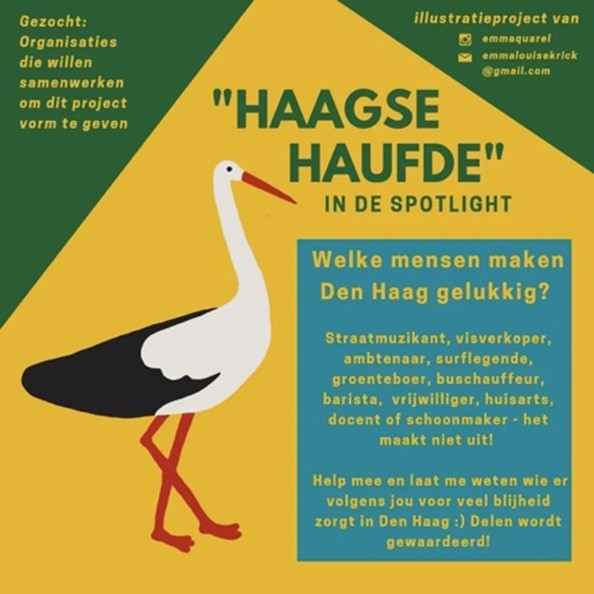
Image: Instagram @emmaquarel -
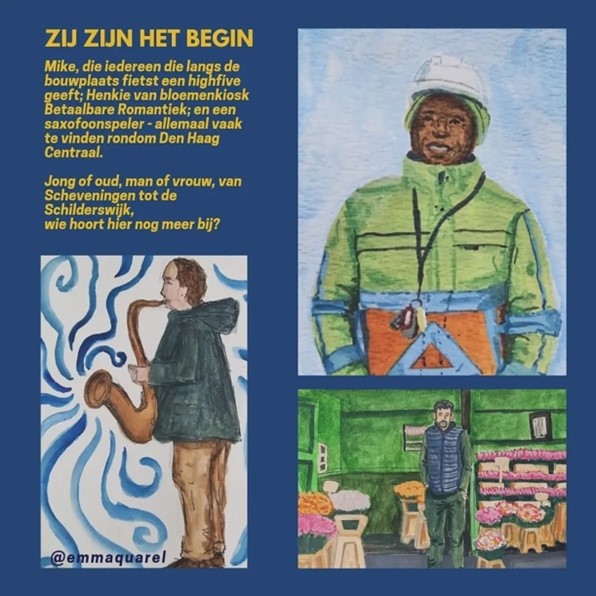
Image: Instagram @emmaquarel
Many LUC students engage in volunteer work, often through the numerous student-run committees, such as ActAware, the sustainability committee. Their initiatives include activities like beach clean-ups. The Community Kitchen, for example, prepares a weekly meal for the LUC community using surplus vegetables from the Haagse Markt.
Beyond campus, many students also volunteer with organisations such as the UNICEF Student Team The Hague, Amnesty International – The Hague chapter, or Medlife, taking on roles as board members or general volunteers. In collaboration with Fortuna, these organisations organise events like clothing and food drives for UNICEF, held in the LUC building.
Through these initiatives, students connect with the diverse social groups and subcultures that shape The Hague’s urban society. This engagement not only helps integrate LUC’s English-speaking students into the city but also encourages them to learn Dutch. Many continue volunteering long after graduation.
For instance, LUC alumna Emma Krick launched Haagse Haufde in the Spotlight, an illustration project celebrating the people who make The Hague a brighter place—whether young or old, native Hagenaars and Hagenezen, or newcomers to the city.
Read more
For more information on student volunteering, please contact the student association Fortuna at vice-president@fortuna-luc.nl.



